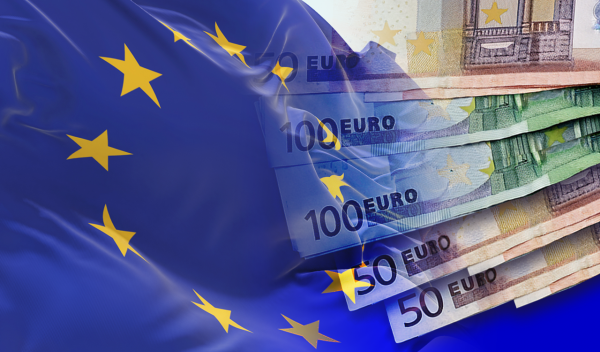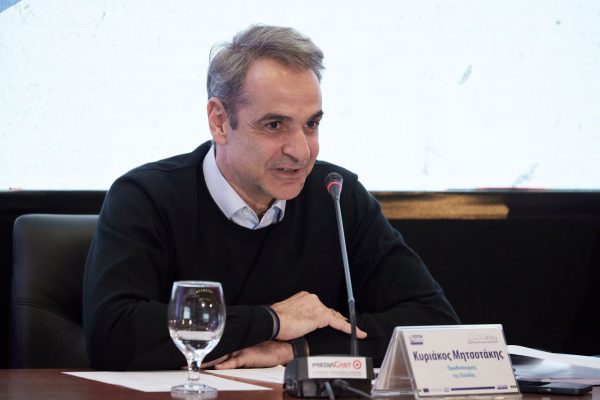
The Global Integrity Report 2022’s regular global survey on corporate fraud shows that the climate is improving in terms of business integrity standards, as well as showing rising expectations from society. At the same time it shows that the pandemic has made things more difficult in terms for entrepreneurial integrity.
The survey, which was conducted between June and September 2021, polled among 4,762 executives from 52 countries worldwide, and the views of 100 business executives in Greece (of which 75 hold managerial or CEO positions), from all major sectors of the economy, including the wider public sector.
As for the Greek participants, one in three, 38%, answered that the standards of integrity in their organization have improved in the last 18 months, compared to 11% who consider that they have worsened – a percentage that should cause slight concern to managements, since it is higher than that in Western Europe (7%) and the global average (6%).
By comparison, the percentage of those who see improvement is higher in neighboring, emerging markets, such as Romania (52%) and Turkey (46%), with the global average at 42%. On the contrary, the particularly low percentage in developed economies, such as Germany (17% – the weakest performance in the overall sample) and France (20%), makes sense.
The improvement of the climate can, possibly, be attributed to the increased awareness of the society on issues of ethical business behavior, as 78% of the executives in Greece (compared to 70% worldwide and 67% in Western Europe), consider that Greek society today has higher expectations, than in the past, about how people should behave at work.
Changes in the regulatory framework have also contributed in this direction, however, the need to comply with legislation does not seem to be the most important factor. When asked about the most important characteristics of integrity at work, 60% indicated responsible behavior towards colleagues, consumers, suppliers and others (global sample: 43%), compared to 49% who reported compliance with laws, rules and regulations.
The effects of the pandemic
Despite this relative improvement in the picture, 36% of executives in Greece and 41% worldwide report that the COVID-19 pandemic has made it more difficult to do business with integrity, confirming the finding that financial pressures and changes in work patterns make more difficult to effectively monitor compliance.
Executives in Greece also appear to be less informed, as 46%, compared to 28% worldwide, said they knew little or nothing about their organization’s policies and procedures for remote work, and 44%, compared to 36% worldwide, on data protection and privacy legislation (eg GDPR).
Respectively, one in ten respondents (10%) in Greece reported that during the last 18 months there have been significant cases of fraud in their organization, a percentage similar to that recorded in Western Europe, but lower than the global sample (13%) and advanced European economies, such as the Netherlands (24%), Finland (23%), Denmark (18%) and Austria (17%). It is also worth noting that, in the corresponding survey for 2018, the percentage in Greece was 8%.
Internal fraud prevention and control mechanisms
The executives who participated in the research were also asked about the measures taken by their organizations to deal with the phenomena of corruption and fraud. More than half (51% in Greece and Western Europe) mentioned the existence of a code of conduct for employees, on how they should behave in business.
Relatively more emphasis than the rest of the world seems to be given to sanctions against employees who do not show professional integrity (45% in Greece, 28% in Western Europe and 34% worldwide), and much less emphasis on procedures or training for due diligence audits of third parties, such as suppliers, sellers, partners or consultants (32% in Greece, 25% in Western Europe and 31% worldwide).
In addition, less than one in three respondents in Greece (28%, compared to 35% worldwide) reported that their business has established a channel through which employees can report whistleblowing incidents.
Investigation of complaints and consequences for the complainants
Nearly three in four participants from Greece (71%, up 13 percentage points from the 2018 survey and the highest among the EU member states in the sample) reported that the organization they work for had received measures against employees for violating integrity standards or regulations, a rate significantly higher than their counterparts in Western Europe (49%) and the rest of the world (62%). Respectively, this percentage is only 18% in Germany, 36% in France and 43% in the United Kingdom, while the percentage in Turkey is quite high and reaches 84%.
This high percentage can be explained by the fact that one in three Greeks (35%) reported that it has become easier for employees to report incomplete behaviors, compared to 26% who have not noticed any change in their body regarding the possibility of reporting relevant incidents.
Specifically, one in four respondents from Greece stated that they have reported cases of immoral behavior, through reports to the administration or the use of a special complaint line for whistleblowers, a percentage marginally lower than in Western Europe (27%), and significantly lower than the rest of the world (35%). Among them, 60% said they felt pressured not to proceed with the complaint, a rate comparatively higher than in Western Europe and the rest of the world (49%) and similar to emerging European and global economies such as Thailand (61%), Saudi Arabia (59%), Romania (58%) and Hungary (57%).
It seems that, despite the opportunities that organizations are gradually offering, executives in Greece do not seem to feel comfortable about their ability to report immoral behavior in the workplace. Only one in two (52%) believe that they can do so without fear of negative consequences for themselves, one of the lowest sample prices and a lower rate than neighboring countries such as Romania (62%), Turkey (70%) and Italy (74%).
As for the reasons why they did not report incidents of delinquent behavior, the most important factor seems to be loyalty to colleagues (38%), a percentage significantly higher than in Western Europe (27%) and the rest of the world (26%). There is an increasing trend here, as in a corresponding question in the global survey of 2016, this percentage in Greece was only 16%, a fact that should concern the administrations regarding the culture of integrity that they instill in their organizations and this should be carefully evaluated. This is followed by concern for the future development of their career (35%) and fear for their personal safety (23%).
Intentions to adopt immoral practices
Finally, the survey shows that a percentage of respondents in Greece, as well as worldwide, admit that they would be willing to adopt immoral practices in order to improve their professional prospects or their pay package. In particular, in Greece, 8% stated that they would ignore immoral behavior in their team, 6% would offer or accept a bribe and 5% would give false information to management. Nevertheless, it is encouraging that these rates are lower than the global average, with some being much lower than those found in developed European economies such as Denmark (20% would accept or offer bribes) and Austria (14% would be unaware of immoral behavior).
Mr. Giannis Drakoulis, Head of the Special Research and Corporate Compliance Department of EY Greece, commented: “According to the findings of our research, it is undoubtedly positive that a significant percentage of executives in Greece believe that the standards of integrity have improved and realize that society’s expectations for responsibility and integrity in business have increased. However, we have a long way to go, especially in an environment where new work models increase compliance control difficulties.
Businesses, in addition to imposing sanctions on those who engage in immoral practices, should send a clear message of zero tolerance for corruption, with an emphasis on control procedures and education. Above all, however, they must create the conditions for the workers themselves to feel that they can report corruption, without fear of negative consequences, and to ensure their protection. “
Latest News

EU Condemns Trump Tariffs, Prepares to Retaliate
As tensions escalate, the EU is expected to continue negotiations with Washington while preparing for potential economic retaliation.

The Likely Impact of Trump Tariffs on Europe and Greece
Trump tariffs are expected to negatively affect economic growth in the Eurozone while Greece's exports could take a hit.

Motor Oil Results for 2024: Adjusted EBITDA of 995 mln€; Proposed Dividend of 1.4€ Per Share
Adjusted EBITDA for 2024 was down 33% yoy. The adjusted profit after tax for 2024 stood at 504 million euros, a 43% decrease from the previous year

Cost of Living: Why Greece’s 3% Inflation Is Raising Alarm
Greece appears to be in a more difficult position when it comes to price hikes, just as we enter the era of Trump’s tariffs.

Fitch Ratings Upgrades the Four Greek Systemic Banks
NBG’s upgrade reflects the bank’s ongoing improvements in its credit profile, Fitch notes in its report, including strong profitability, a reduction in non-performing exposures (NPEs), and lower credit losses

Trump to Announce Sweeping New Tariffs Wednesday, Global Retaliation Expected
With Trump's announcement just hours away, markets, businesses, and foreign governments are bracing for the fallout of one of the most aggressive shifts in U.S. trade policy in decades.

Inflation in Greece at 3.1% in March, Eurostat Reports
Average inflation in the eurozone settled at 2.2%, compared to 2.3% in February

Greece’s Unemployment Rate Drops to 8.6% in February
Despite the overall decline, unemployment remains higher among women and young people.

Jerry Kalogiratos Highlights Key Role of Energy Transition and Data Demand in LNG Outlook
Energy transition and the prospects of LNG were discussed at Capital Link’s 19th Annual International Maritime Forum, during a panel discussion with Jerry Kalogiratos (Capital Clean Energy Carriers Corp.)

Santorini Safe and Ready for a Dynamic Tourism Season
Authenticity, cultural heritage, and genuine experiences at the center of Santorini's new promotional campaign












![Τουρκία: Μεγάλες βλέψεις για παραγωγή ηλεκτρικών οχημάτων [γράφημα]](https://www.ot.gr/wp-content/uploads/2025/03/ot_turkish_autos-90x90.png)











![ΕΛΣΤΑΤ: Αυξήθηκε η οικοδομική δραστηριότητα κατά 15,6% το Δεκέμβριο [πίνακες]](https://www.ot.gr/wp-content/uploads/2025/03/DSC9655-2-1024x569-1-90x90.jpg)
















 Αριθμός Πιστοποίησης
Αριθμός Πιστοποίησης